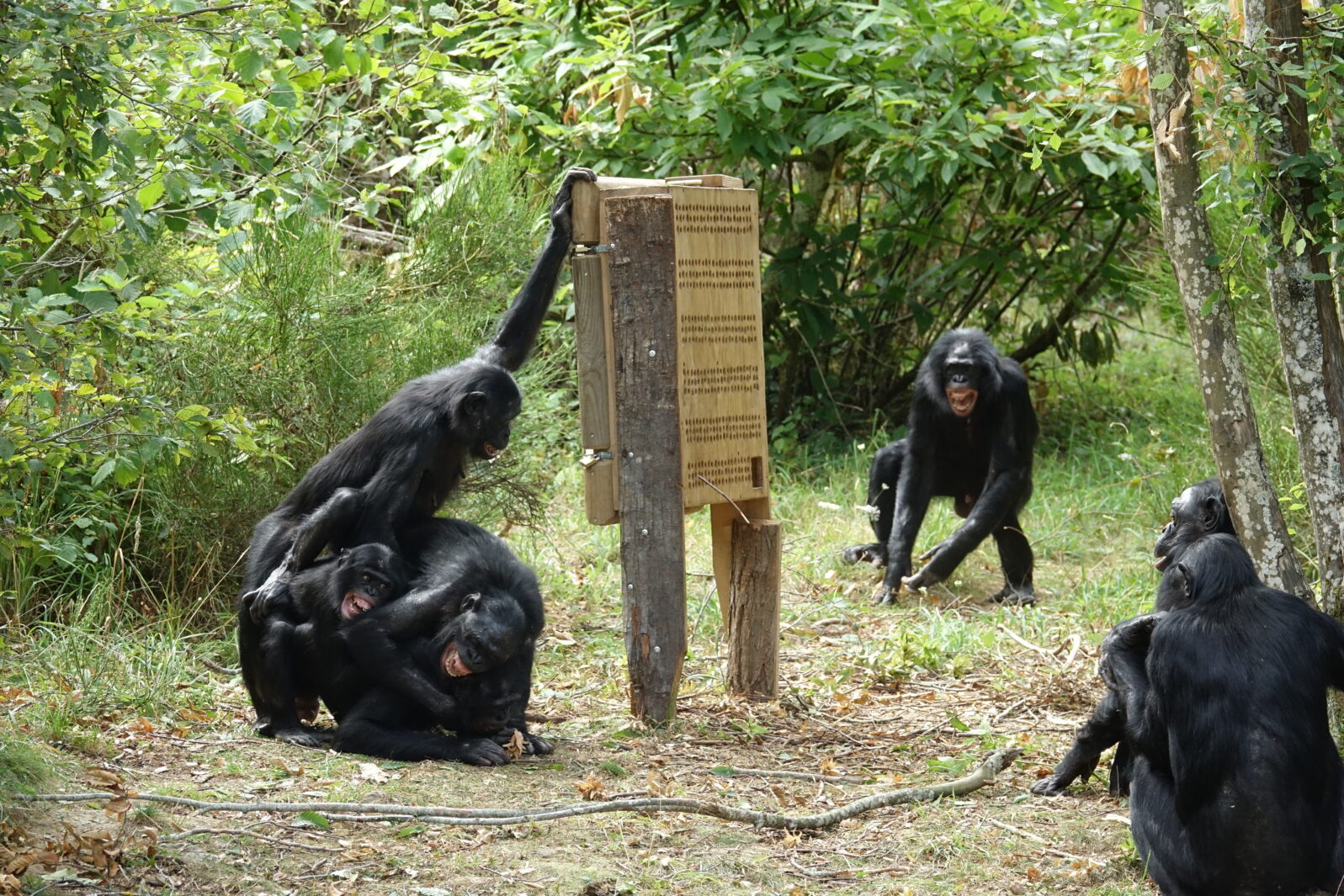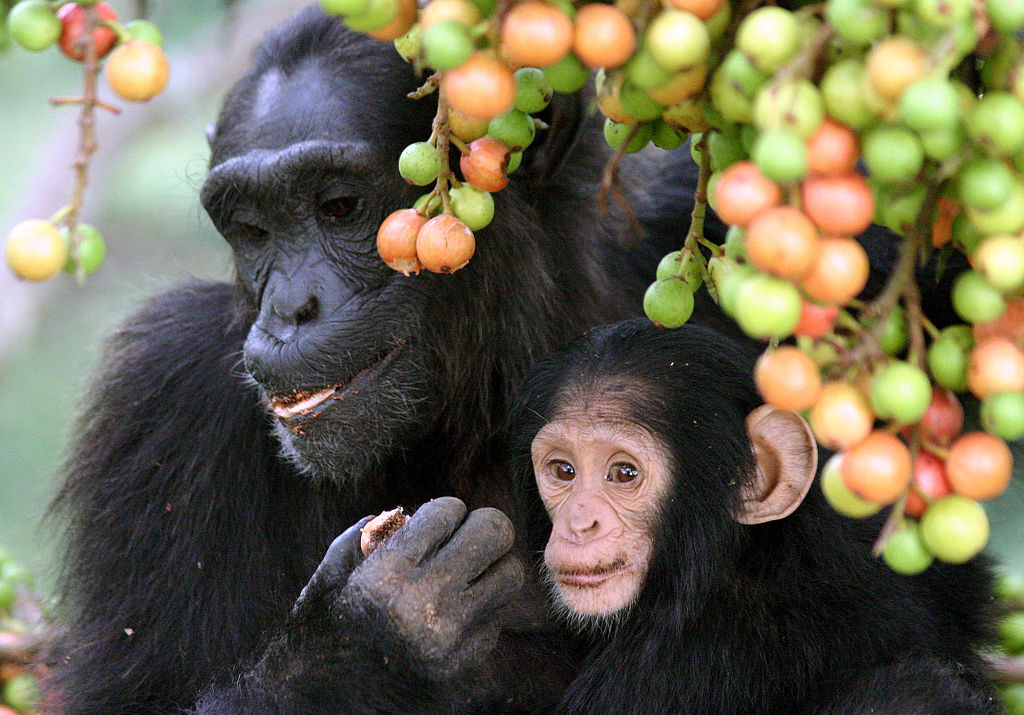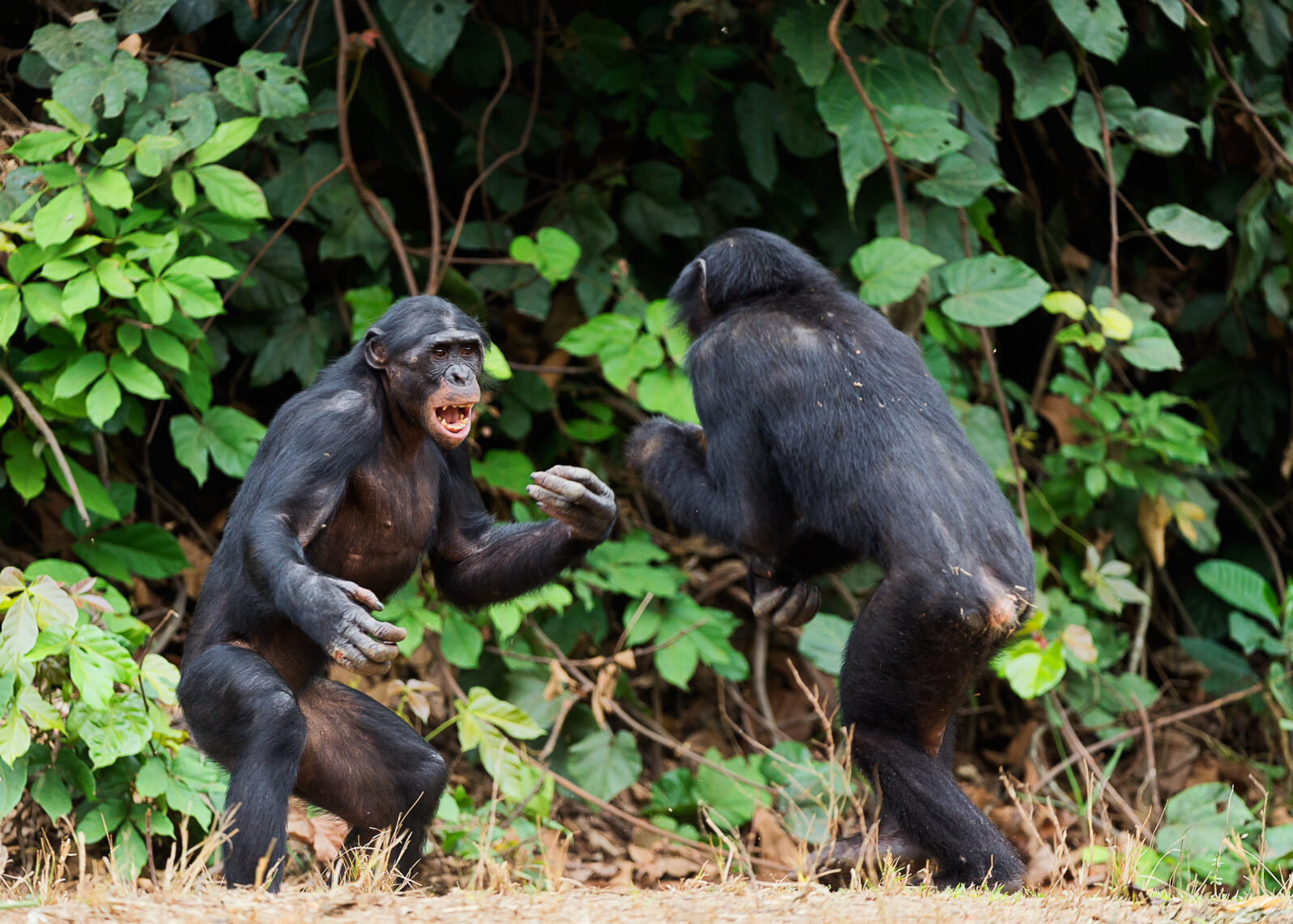Researchers: Bonobos Are More, Not Less, Aggressive Than Chimps
Tracking males of both types of ape every waking hour shattered the pop science “hippie ape” illusionFor some decades now, we have been told the bonobo, the pygmy chimpanzee was the gentle, “hippie” chimp (Pan paniscus), compared to its bigger cousin, the more familiar Pan troglodytes. For example, this from the Harvard Gazette:
The endangered bonobo, the great ape of the Central African rainforest, has a reputation for being a bit of a hippie. Known as more peaceful than their warring chimpanzee cousins, bonobos live in matriarchal societies, engage in recreational sex, and display signs of cooperation both inside and outside their immediate social groups.
Anne J. Manning, So much for summers of love, Harvard Gazette, April 22, 2024 The paper in Current Biology requires a subscription.

Recent research suggests, however that that hippie lifestyle — always on the verge of morphing into a pop science morality tale for humans — is mythical. Researchers followed 12 male bonobos and 14 male chimps during their entire waking hours, recording everything they did. Here’s what they found, from The Guardian:
Overall, the team recorded 521 aggressive interactions involving tracked bonobos over 2,047 hours, and 654 aggressive interactions among the identified chimpanzees over 7,309 hours. The team say that despite previous studies finding chimpanzees show more severe aggression – such as killings, infanticide and sexual coercion – the results reveal aggressive acts between males were 2.8 times more frequent in bonobos than in chimpanzees, with acts involving physical contact specifically found to be 3.0 times more frequent.
Nicola Davis, Bonobos not the peace-loving primates once thought, study reveals,The Guardian, April 12, 2024.
A snippet from Smithsonian Magazine captures the researchers’ surprise at their discovery:
“It was five in the morning, and the bonobos had just woken up. The field assistants said, ‘This is an aggression.’ And I was like, ‘Wait, where is the peaceful bonobo in this?’” Mouginot tells National Geographic’s Tim Vernimmen. As the study period went on, the team recorded more and more instances of aggression between bonobos. They counted 521 instances of both physical (punching, kicking, biting) and non-contact (charging, chasing) aggression from 12 males of the species. “I was so confused that I looked at each aggression one by one to make sure I had no duplicates,” Mouginot says to National Geographic.
Christian Thorsberg, “Male Bonobos, Close Human Relatives Long Thought to Be Peaceful, Are Actually Quite Aggressive,Study Suggests, Smithsonian Magazine, April 15, 2024
Among the bonobos, aggressive behavior between males and females were less common, perhaps because females tend to rank higher in the bonobo status hierarchy. But in both groups, aggressive males mated with more females.
At ScienceDaily, the editors of Cell Press sought to let us disillusioned humans down gently:
Chimpanzees and bonobos are often thought to reflect two different sides of human nature — the conflict-ready chimpanzee versus the peaceful bonobo — but a new study shows that, within their own communities, male bonobos are more frequently aggressive than male chimpanzees.
Cell Press. “Bonobos are more aggressive than previously thought, study shows.” ScienceDaily. , 12 April 2024.
Actually, it’s easier to imagine real-life apes as a satire on human nature than a serious commentary on it. Planet of the Apes only worked because the apes had human-like minds.
Doubt cast on Darwinian model
The research casts doubt on a Darwinian natural selection hypothesis though: “These findings partially contradict a prevailing hypothesis in primate and anthropological behavior — the self-domesticating hypothesis — which posits that aggression has been selected against in bonobos and humans but not chimpanzees.” (ScienceDaily) Actually, in humans, aggression has not been “selected against” by nature either. Rather, we use instruction in civilized behavior and, when necessary, law enforcement. It’s not clear that the moral element in human nature is a product of nature at all.

The authors reflect on their findings:
The researchers think these comparisons may boil down to different ways chimps and bonobos evolved to form coalitions. Chimps depend heavily on the strength of their male coalitions to defend territories and achieve reproductive success by mating with fertile females. Infighting within those coalitions thus “costs” chimps more, so they do it less often. Bonobos are more independent, less in need of strong coalitions, so they can “afford” to fight more and risk group strife, with less at stake for their reproductive success, according to Surbeck.
Anne J. Manning, So much for summers of love, Harvard Gazette, April 22, 2024
But neither group has much to teach us
Animal behavior is fascinating to study but human reason and moral choice mean that there is a gulf fixed between all chimpanzees and all humans. The “hippie ape,” it turns out, is yet another product of the human imagination; the bonobos themselves are animals in nature. It’s best not to confuse the two.
Bonobos vs. chimpanzees in general:
You may also wish to read: Why humans can’t “share the spotlight” with tool-using animals. As the Ivy League war on human exceptionalism motors on, researchers’ thinking sometimes shorts out — and they don’t even notice. Their discussion of animal behavior depends wholly on the uniquely human ability to abstract. That ability also radically changes how humans use tools.
